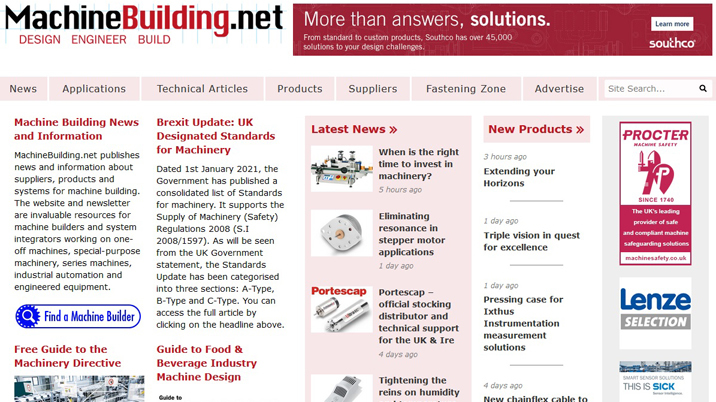
An important part of what makes the publishing industry so dynamic and vibrant are the small start-ups; one or two person bands with a brand and a passion. It's fascinating to watch the owners duck and dive in their early days as they try to knit together a coherent publishing strategy and a viable business, before growing through launches or acquisitions, until, often finally selling up and buying the place in the sun they’d always dreamed of.
Last week, I met, virtually, the man behind one such start up, Luke Webster of The Engineering Network (TEN) to interview him for a sponsored (by their software provider, Perception SaS) article in the September / October issue of InPublishing magazine.
TEN launched in June last year having acquired the web-only brand, MachineBuilding.net. They now have three brands having since launched FasteningandBonding.net and acquired Industrial Technology magazine, so they seem to be heading in the right direction.
One characteristic Luke shares with other publishing start-ups is big ambition allied to limited resources. Talking to him, I would say that the following are pre-requisites for start-up success:
- Close relationship with key commercial clients.
- Good quality targeted content (goes without saying).
- Well-structured, easily accessible and transparent data through the integration of content, sales and audience platforms.
- Streamlined processes. With limited resources, it is vital that they do not get bogged down doing the basics.
- Agility: one of the advantages independent publishers have over larger rivals is their ability to take big decisions quickly.
Ultimately, small companies like The Engineering Network want to be able to do all the things that their bigger rivals can do. With the growth in computing power, the emergence of cloud technologies and the advance of sophisticated yet affordable software solutions, that is now possible.
You can catch James Evelegh’s regular column in the InPubWeekly newsletter, which you can register to receive here.










